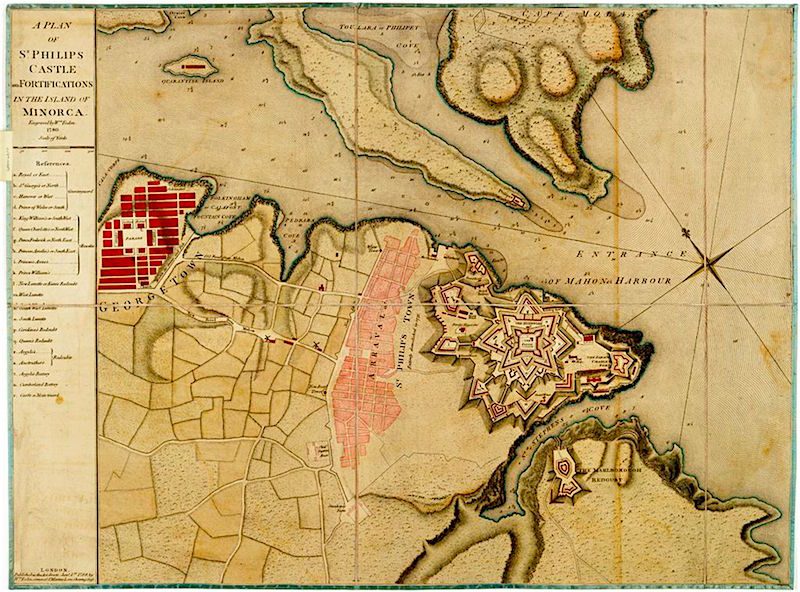It was on this day 261 years ago that the British admiral John Byng was executed by firing squad aboard HMS Monarch. His crime? He had failed to relieve the British garrison on Minorca, which thus lead to the island’s loss at the outset of the Seven Years War (1756-1763). The British had held Minorca since the end of the War of the Spanish Succession (1702-1714).

Admiral Byng by an unknown engraver, circa 1756. Credit: Wikimedia.
Although acquitted of personal cowardice, Byng was convicted by court martial of failing to live up to the Articles of War, mainly for not keeping his fleet together and taking his ships back to Gibraltar for repair in the wake of an indeterminate battle with French vessels instead of attempting to relieve the garrison on Minorca. Public opinion was outraged and George II refused to use his royal prerogative to grant mercy. In hindsight, it looks very much like Byng was a scapegoat for the humiliating loss of Minorca in one of the earliest actions of the Seven Years War.

Map showing Fort St. Philip near Port Mahon, Minorca, when it was under British rule. Credit: Wikimedia.
Voltaire satirizes this judicial murder in Candide. The title character sees a senior naval officer being put to death and someone says, “Dans ce pays-ci, il est bon de tuer de temps en temps un amiral pour encourager les autres”/”In this country, it’s good to kill an admiral from time to time in order to encourage the others.”
Further reading: https://en.wikipedia.org/wiki/John_Byng
Did you know that Versailles Century has both a Facebook page and a gallery on Instagram (@versailles_century)? Please ‘like’ and follow one or both of them. The content is not identical on each platform. For instance, I use only my own original photos on Instagram, while for this blog I also use images sourced from the Web.


















Leave a Comment